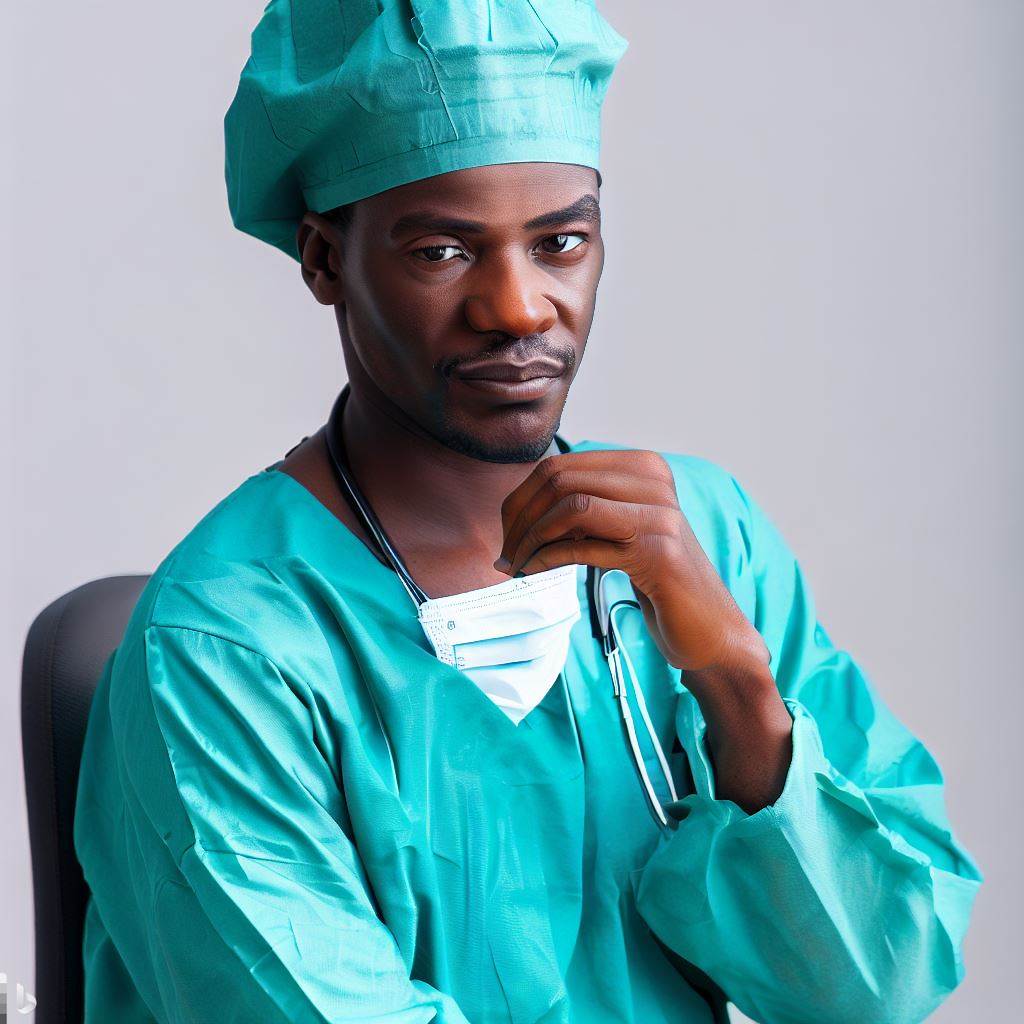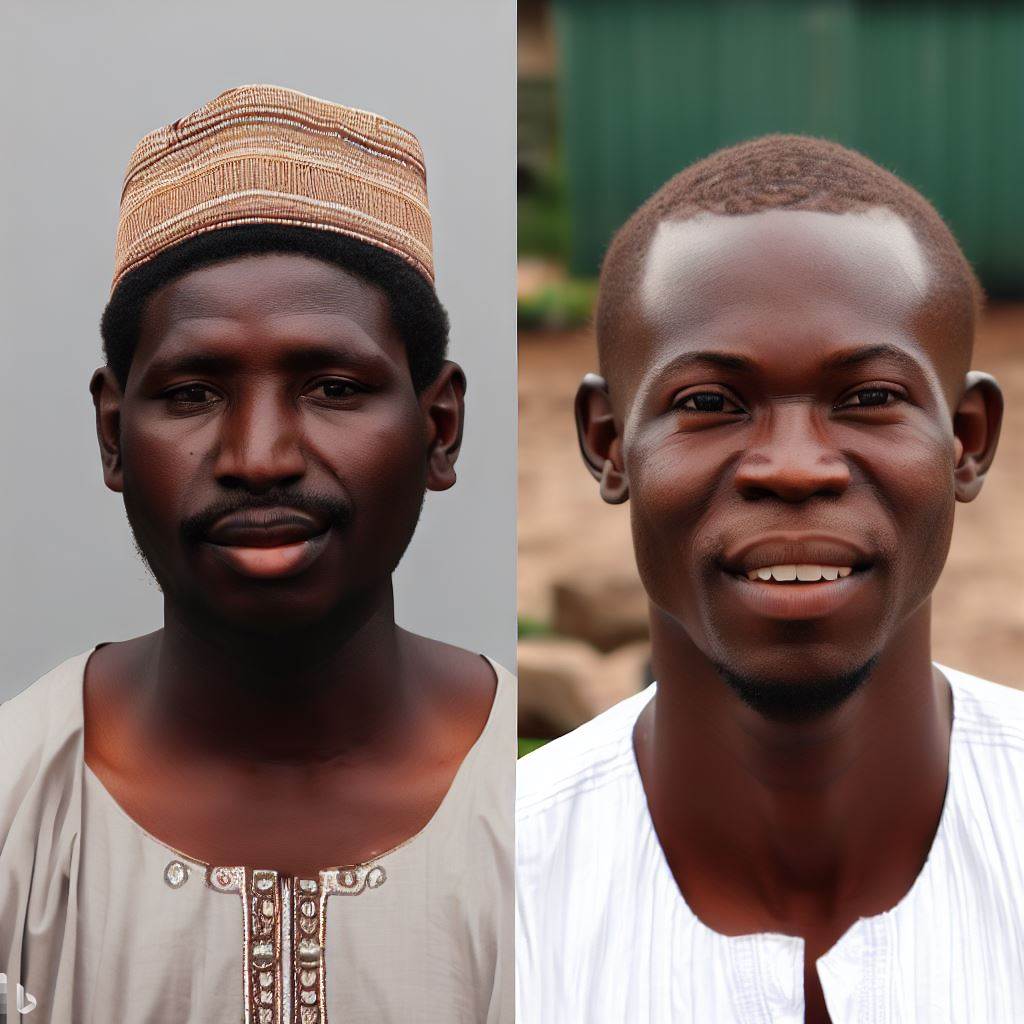Introduction
This blog post explores the impact of cultural diversity on speech-language pathology in Nigeria and its significance.
Speech-language pathology is the study and treatment of communication disorders. Cultural diversity refers to the presence of different cultures within a society.
In Nigeria, speech-language pathology plays a crucial role in addressing communication disorders among individuals from diverse cultural backgrounds.
As a multidisciplinary field, speech-language pathology focuses on diagnosing and treating speech, language, and swallowing difficulties.
Cultural diversity in Nigeria is rich and complex, with over 250 ethnic groups and numerous languages spoken. This diversity presents unique challenges for speech-language pathologists.
Firstly, cultural beliefs and values can influence individuals’ perceptions of communication disorders and influence their attitudes towards seeking treatment.
Some cultures may view communication difficulties as a social stigma or punishment rather than a medical condition.
Consequently, individuals may delay seeking help, hindering early intervention and treatment outcomes.
Furthermore, diverse languages spoken in Nigeria present challenges in diagnosis and intervention.
Speech-language pathologists must consider the linguistic and cultural backgrounds of their clients to tailor appropriate assessments and therapy approaches.
Adequate training and knowledge about cultural practices and languages are vital to effectively address language and communication needs.
Lastly, cultural diversity also impacts the development of standardized assessments and therapeutic materials.
Speech-language pathologists need to consider the cultural relevance and appropriateness of these resources to ensure accurate diagnosis and effective therapy.
In the end, the impact of cultural diversity on speech-language pathology in Nigeria is significant.
By recognizing and addressing cultural factors, speech-language pathologists can provide culturally sensitive and effective services to meet the diverse communication needs of individuals in Nigeria.
Transform Your Career in Nigeria
Discover unmatched expertise with our personalized Career Consulting service. Navigate Nigeria’s job market with a strategy tailored just for you.
Get StartedCultural Diversity in Nigeria
Ethnic groups and languages spoken in Nigeria
Nigeria is home to over 250 ethnic groups, each with its own unique languages and dialects. The major ethnic groups in Nigeria include Hausa, Yoruba, Igbo, and Fulani.
Hausa is predominantly spoken in Northern Nigeria, while Yoruba is spoken in the Southwest and Igbo in the Southeast.
These major ethnic groups represent a significant portion of the Nigerian population and have distinct cultural practices.
Historical and cultural background
Nigeria has a rich history influenced by various cultures, including Arabic, British, and indigenous African cultures.
The impact of colonization and the introduction of Western education have played a significant role in shaping Nigeria’s cultural landscape.
Traditional African values and customs are still deeply ingrained in Nigerian society, coexisting with modern Western influences. The blend of diverse cultural backgrounds creates a unique cultural tapestry in Nigeria.
Impact of cultural diversity on communication and language development
The linguistic diversity in Nigeria can pose challenges in the field of speech-language pathology.
Speech-language pathologists need to be knowledgeable about different languages and dialects to effectively serve their clients.
Cultural beliefs and practices can affect how individuals perceive and approach communication disorders.
A culturally sensitive approach is necessary to provide appropriate intervention and support to individuals from diverse backgrounds.
Language development may differ across ethnic groups due to variations in cultural values, norms, and educational opportunities.
Speech-language pathologists must consider cultural factors when assessing language skills and designing intervention plans.
Miscommunication and language barriers can arise when individuals from different cultures communicate.
Cultural competence and effective cross-cultural communication strategies are essential in providing quality care and services.
Your Unique Story, Perfectly Told
Don't let your dream job slip away with a generic resume. We craft personalized resumes and cover letters that highlight your unique strengths, making you unforgettable to Nigerian employers.
Get HiredCollaboration with other professionals, such as interpreters and cultural consultants, can enhance communication and understanding.
Speech-language pathologists need to actively engage with diverse communities to gain cultural insights and foster inclusivity.
Adequate training and ongoing professional development are necessary to address the challenges posed by cultural diversity.
Embracing cultural diversity can lead to more comprehensive assessment and intervention strategies, promoting positive outcomes for clients.
It is crucial to recognize and respect cultural differences while ensuring equal access to speech-language services for all Nigerians.
In fact, Nigeria’s cultural diversity, including its ethnic groups and languages, deeply influences communication and language development.
Addressing the impact of cultural diversity on speech-language pathology requires cultural sensitivity, effective cross-cultural communication, and ongoing professional development.
By embracing cultural differences, speech-language pathologists can provide inclusive and effective services to individuals from diverse backgrounds in Nigeria.
Read: The Role of Speech-Language Pathologists in Nigerian Autism Care
The Role of Speech-Language Pathology in Nigeria
Explanation of speech-language pathology profession
Speech-language pathology is a healthcare profession that focuses on assessing, diagnosing, and treating communication and swallowing disorders.
Speech-language pathologists (SLPs) work with individuals of all ages who have difficulties with speech, language, voice, or swallowing.
They are trained professionals who have a deep understanding of the anatomy and physiology of the speech and hearing mechanism.
SLPs use various assessment techniques, such as standardized tests and observations, to evaluate the communication and swallowing abilities of their clients.
They develop personalized treatment plans and interventions to help individuals improve their communication skills and overcome their difficulties.
Transform Your LinkedIn Presence
Don't let your LinkedIn profile blend into the crowd. We uniquely craft profiles that showcase your professional story, making Nigerian recruiters take notice like never before.
Stand OutImportance of speech-language services in Nigeria
Nigeria is a culturally diverse country with numerous languages and dialects spoken across its regions.
Speech-language services play a vital role in ensuring effective communication and language development in Nigerian communities.
SLPs help individuals with speech and language disorders to communicate better, which enhances their social, academic, and professional interactions.
Early intervention and speech therapy can significantly improve the communication skills of children with speech and language disorders.
Speech-language services also benefit adults who have suffered from strokes, traumatic brain injuries, or other conditions that affect their ability to speak, understand, or swallow.
Challenges and barriers faced by speech-language pathologists in Nigeria
- Limited awareness and understanding of speech-language pathology among the general public and healthcare professionals.
- Inadequate funding and resources for training programs and services.
- Shortage of qualified speech-language pathologists, especially in rural areas.
- Cultural beliefs and stigmas associated with communication disorders, which may delay seeking help or lead to misconceptions.
- Lack of standardized assessment tools and resources specific to Nigerian languages and dialects.
Despite the challenges, efforts are being made to address these barriers and improve access to speech-language services in Nigeria.
Collaboration between government agencies, educational institutions, and professional associations is crucial in promoting awareness, training more SLPs, and developing culturally relevant assessment tools.
In short, speech-language pathology plays an important role in Nigeria by providing services to individuals with communication and swallowing disorders.
It improves their quality of life, enhances their participation in society, and fosters inclusive communication environments.
However, there are challenges that need to be overcome to ensure that speech-language services are accessible to all Nigerians.
With continued efforts and support, the field of speech-language pathology can make a significant impact on the diverse population of Nigeria.
Read: Teletherapy for Speech-Language Pathology in Nigeria: An Overview
Cultural Factors Affecting Speech-Language Pathology
Diverse cultural beliefs and attitudes towards communication disorders
Some Nigerian cultures may attribute communication disorders to spiritual or supernatural causes.
Beliefs in traditional remedies and healers can lead to delayed intervention and limited access to professional services.
Stigma and shame associated with communication disorders may prevent individuals from seeking help.
Cultural norms emphasizing stoicism and self-reliance may discourage individuals from acknowledging and addressing communication difficulties.
Negative societal attitudes towards communication disorders can result in discrimination and exclusion.
Cultural diversity has a profound impact on speech-language pathology in Nigeria. Various cultural factors affect the way communication disorders are perceived, diagnosed, and treated.
Diverse beliefs and attitudes towards communication disorders can lead to delayed intervention and limited access to professional services.
Cultural norms, such as stoicism and self-reliance, may discourage individuals from seeking help. Negative societal attitudes and stigma further contribute to discrimination and exclusion.
Language differences and dialectal variations
Nigeria is home to over 500 ethnic groups, each with their own languages and dialects. Language barriers may hinder accurate assessments of speech and language disorders.
Language differences in grammar, pronunciation, and vocabulary can influence the diagnosis and treatment of communication disorders.
Speech-language pathologists need to be familiar with diverse languages and dialects to provide effective interventions.
Children who speak a different language or dialect at home may experience difficulties in acquiring the dominant language used in educational settings.
Language differences and dialectal variations present significant challenges in speech-language pathology.
Nigeria’s linguistic diversity, with over 500 ethnic groups and languages, necessitates a deep understanding of different languages and dialects.
Language barriers can hinder accurate assessments, and language differences can influence diagnosis and treatment approaches.
Children from diverse linguistic backgrounds may face difficulties in acquiring the dominant language used in educational settings.
Cultural perceptions of disability and stigma
Disability is often viewed as a personal or family curse, leading to social isolation and discrimination.
Individuals with communication disorders may be seen as less capable or deserving of opportunities. Stigma linked to communication disorders can affect an individual’s self-esteem and mental well-being.
Lack of awareness, misconceptions, and stereotypes about communication disorders contribute to societal stigma.
Efforts are needed to promote inclusivity, foster acceptance, and challenge cultural beliefs that perpetuate stigma.
Moreover, cultural perceptions of disability and stigma affect individuals with communication disorders. Disability is often considered a personal or family curse, leading to social isolation and discrimination.
Individuals with communication disorders may be perceived as less capable or deserving of opportunities. Stigma related to communication disorders impacts self-esteem and mental well-being.
Addressing lack of awareness, challenging misconceptions, and promoting inclusivity are crucial in combating cultural stigma.
In essence, cultural factors significantly shape the field of speech-language pathology in Nigeria.
Diverse cultural beliefs and attitudes towards communication disorders, language differences and dialectal variations, and cultural perceptions of disability and stigma all influence the way communication disorders are understood and addressed.
Acknowledging and addressing these cultural factors are essential in providing effective interventions and promoting inclusion and acceptance for individuals with communication disorders in Nigeria.
Read: Skills Required for a Speech-Language Pathologist in Nigeria

Addressing Cultural Diversity in Speech-Language Pathology
Recruitment and training of culturally competent professionals
Ensure that professionals in the field of speech-language pathology receive adequate training on cultural diversity.
Recruit individuals from diverse backgrounds to reflect the cultural makeup of the Nigerian population. Offer ongoing professional development and training opportunities to enhance cultural competency skills.
Encourage collaboration and exchange of knowledge among professionals from different cultural backgrounds.
Collaborative approach with families, communities, and other professionals
Recognize the importance of involving families and communities in the assessment and intervention process.
Establish partnerships with community organizations to better understand cultural norms and values. Communicate effectively with families by using culturally sensitive and appropriate language.
Collaborate with other professionals such as educators and healthcare providers to provide a holistic approach to therapy.
Developing culturally appropriate assessment and intervention strategies
Adapt assessment tools to be culturally sensitive by considering language, socio-cultural factors, and communication styles.
Ensure that intervention strategies are tailored to the cultural and linguistic needs of the individual.
Employ culturally relevant materials, resources, and activities that resonate with the clients’ cultural backgrounds.
Promote client-centered therapy by acknowledging and incorporating cultural beliefs and practices into the intervention plan.
In general, addressing cultural diversity in speech-language pathology in Nigeria requires a comprehensive approach.
It involves recruiting and training culturally competent professionals, adopting a collaborative approach with families and communities, and developing culturally appropriate assessment and intervention strategies.
By embracing cultural diversity, speech-language pathologists can provide effective and inclusive services that meet the needs of diverse populations.
Read: Respiratory Therapist Education: Nigerian Universities
Success Stories and Best Practices
Examples of successful interventions in cultural diverse settings
Implementing culturally relevant assessment tools and therapy techniques in speech-language pathology.
Designing intervention programs that incorporate the cultural beliefs and practices of the Nigerian population.
Providing language therapy in the native languages of the individuals, respecting their cultural diversity.
Collaborating with community leaders and elders to gain their support and understanding for speech-language pathology interventions.
Collaboration with local communities and traditional healers
Engaging in dialogue with traditional healers to build partnerships and enhance mutual understanding of speech-language pathology.
Incorporating traditional healing practices into speech-language therapy interventions to effectively address cultural diversity.
Seeking guidance and input from local communities in the development and implementation of speech-language pathology programs.
Raising awareness among traditional healers about the importance of early intervention and the benefits of speech-language pathology services.
Involvement of multicultural teams and professionals
Recruiting and training a diverse team of speech-language pathologists from different cultural backgrounds.
Encouraging collaboration and knowledge exchange between professionals to enhance cultural competence.
Promoting diversity and inclusion within the field of speech-language pathology through outreach programs and scholarships.
Providing training and educational opportunities for speech-language pathologists to develop cultural competency skills.
Overall, the impact of cultural diversity on speech-language pathology in Nigeria is being addressed through successful interventions, collaboration with traditional healers, and the involvement of multicultural teams and professionals.
By implementing culturally relevant practices and respecting the cultural beliefs and practices of the Nigerian population, speech-language pathologists can effectively provide therapy services and improve communication outcomes for individuals from diverse cultural backgrounds.
Conclusion
This post discussed the impact of cultural diversity on speech-language pathology in Nigeria. It emphasized the importance of recognizing and embracing cultural diversity in this field.
There is a need for further research and advocacy in order to address the challenges and provide effective services.
Key Points Discussed
- Cultural Richness: Nigeria’s diverse cultures influence communication patterns and disorders.
- Language Variation: Multilingualism poses challenges and opportunities in speech therapy.
- Cultural Beliefs: Traditional views impact perceptions of communication disorders and treatments.
Embracing Cultural Diversity in Speech-Language Pathology
- Enhanced Communication: Tailored interventions respect cultural norms and preferences, fostering better understanding.
- Effective Therapy: Cultural sensitivity improves treatment engagement and outcomes.
- Holistic Approach: Cultural awareness enables SLPs to address linguistic and social factors.
Call to Action: Research and Advocacy
- Research: Investigate cultural influences on communication disorders, guiding more effective interventions.
- Training: SLPs should receive cultural competence training to serve diverse populations better.
- Community Engagement: Collaborate with local communities, integrating cultural practices into therapy.
- Awareness: Advocate for public awareness of the impact of culture on communication disorders.
Finally, recognizing and embracing cultural diversity enriches Speech-Language Pathology in Nigeria.
Let’s champion research, training, and advocacy to ensure effective and culturally sensitive communication support for all.




